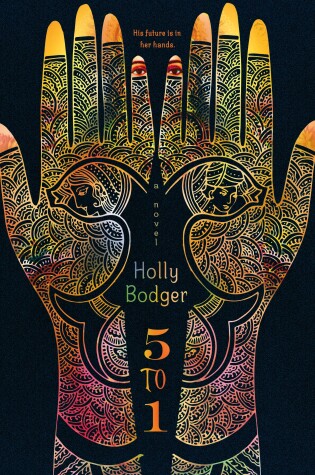
Linda
Written on May 24, 2016
5 to 1 has an amazing premise, however, more than being about women in power, it was about someone abusing power in a society that had opposite values from the patriarchal one.
The prose (and the verse) in 5 to 1 was beautiful, but the story didn't really carry its own weight in my opinion. It was as if the society and how it works in some countries today - one child policy, a very strong want for sons, women being at the mercy of the men in their family - was just turned upside down. And that made the story less relevant to me - because it didn't really ask any important questions, it just showed us what is wrong, by doing it completely opposite to how it looks in patriarchal societies.
The world building was flimsy at best, as apart from the fact that women had taken the decision to stop 'getting rid of' their daughters, by putting a wall up around their new country, and more or less forcing men - and a lot of women, too - to obey the new laws. 5 to 1 could have been much more, but it read like a cross between The Hunger Games and the Testing and Egalia's Daughters.
Because of the shortness of the story, which only spanned over three days, and the fact that Sudasa's chapters were in verse made it a bit difficult to actually connect to her, even if the writing was gorgeous. Normally, dual points of views makes me feel like I really get to know the characters, but here, that didn't really happen. It just kind of poked at the surface, never going deep enough to get all the dirty details.
These people have been here before.
Those over> thirty as audience.
Those under< as players.
(Women in my place.
Men on the stage.)
The men played a game.
Put on a show. Won
a contest.
a wife.
a life.
Life sentence, if you ask me.
He speaks using only the best words. He tends only the strongest crops. He has saved everything to give me one shot, and one shot only, at a new life.
The State provides their food, their shelter, their shackles for life. It's do or die - or, for many, do and die.


